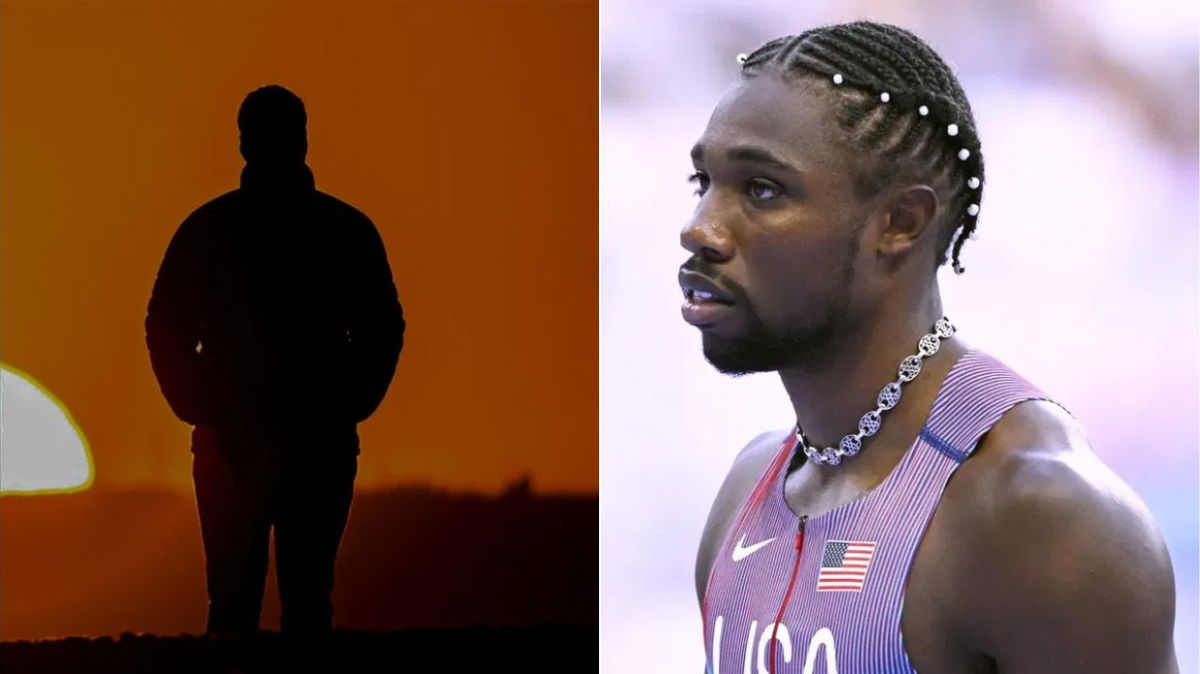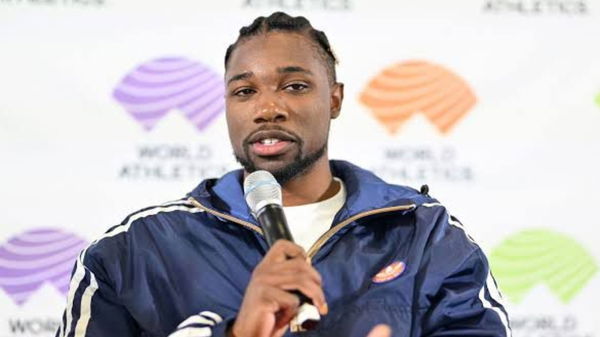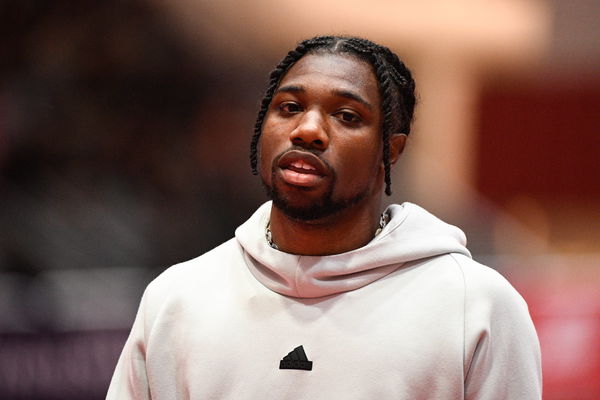
Imago
Credits: Imago

Imago
Credits: Imago
During a candid, three-hour conversation on Cam Newton’s Funky Friday podcast (aired May 30), Olympic sprint star Noah Lyles peeled back the curtain on what went wrong between him and Grand Slam Track—the brainchild of track legend Michael Johnson. Despite calling the new series “the closest thing we’ve ever had to a professional league in track and field,” Lyles revealed that months of negotiations with Michael Johnson fell through over money and marketing. But when vets are asked to chime in, the response is not the one that is expected.
Watch What’s Trending Now!
“I’ve worked very long to increase my value in this sport,” Lyles said. “When he came to me and asked me to be a part of it, he gave me a number, and we said that number is not a fraction of what my worth is right now—and this is before the [2024] Olympics.” But Lyles wasn’t just about the dollars. He explained that after the Games, he revisited the idea with Johnson, hopeful they could find new terms. I said I still like what you’re doing. I’d like to be a part of it, but if I’m not going to financially gain on one side, I have to, market-wise, get value from it,” the reigning Olympic champion added. “And at the time, he could not give me enough reason in my head to believe that I was going to—marketwise—get enough value from it.” While Lyles questioned the marketability of Grand Slam Track and ultimately declined to participate, another Olympic veteran has now weighed in—albeit on a different note.
ADVERTISEMENT
On the June 6 episode of his Ready Set Go podcast, former Olympic champion Justin Gatlin addressed Lyles’ broader frustrations, not with GST specifically, but with the sport’s lingering amateurism. Gatlin didn’t respond directly to Lyles’s comments about Johnson’s venture, choosing instead to reflect on the deeper issue: “I think it’s necessary when you’re an elite athlete, you have the audience’s ear, they’re listening to what you’re going to say, they’re going to click, they’re going to listen to what you have to say and that’s an issue in our sport—not having a union, not having a retirement fund for all the work that you’ve done in the years that you put in, whatever you have is in your pocket, that’s what you walk away with.” But what did Noah say on it that impressed Gatlin?
ADVERTISEMENT

ADVERTISEMENT
In a searingly honest appearance on Cam Newton’s Funky Friday podcast, Noah Lyles didn’t just talk about medals or speed—he exposed the chaotic underbelly of professional track and field. With no league, no players’ union, no pension, and no real structure, the world’s fastest men and women are, in Lyles’s words, little more than high-profile freelancers. “Track and field as a sport is amateur,” Lyles said bluntly. “I’m a contractor. I’m contracted by Adidas to sell the product. How I do that is by running and being seen on TV. But when I go to a track meet, anybody can go to these track meets; you can go to this track meet if you run fast enough. Or maybe not even run fast enough. Maybe you just know the right person.” It’s a stinging truth that reverberated far beyond Newton’s podcast studio.
In his podcast, Gatlin doubled down on the bigger issue: the illusion of professionalism in the sport. “In our sport, there’s no one to fight for you and there’s no one to wish you well and say, ‘Here’s a little severance package or here’s a little pension in your pocket.’ There’s nothing like that in our sport,” Gatlin lamented. The veteran sprinter, who’s lived through the best and worst of track—also spoke about what happens when the spikes come off. “Usually these athletes leave at about 30 years old,” he said. “Now, what is 30 years old in the real world? You’re still a puppy; you’re still trying to find yourself in the real world, and all your friends that don’t run track have already established a career for themselves, and now you’re sitting around thinking, like, what do I do next? What do I do with my life now that stress comes along?”
ADVERTISEMENT
While GST didn’t come up in Gatlin’s remarks, it remained a shadow in the background. Still, Gatlin appreciated the larger point Noah was trying to make. But from time to time, Noah kept sharing words on GST.
Noah Lyles has been remaining sharp on the discussion of GST
On Funky Friday with Cam Newton, Noah Lyles didn’t hold back. The Olympic champion wasn’t just discussing performance or prestige—he was digging into the deep-rooted marketing flaws in track and field. And to make his point crystal clear, he dropped a question that caught even the former NFL MVP off guard: “And I know a lot of track and field people are going to be mad, but I’m going to ask you this one question to prove my point: Have you ever heard of Grand Slam Track?” Cam Newton didn’t blink, “No, I have not.” And just like that, Lyles nailed his argument. “And that proves my point,” he said. “Do not feel bad; this is only proving that we need to do better, we need to step up, that there needs to be a higher level of marketing, storytelling, and, you know, pushing the product.” For Lyles, this isn’t just a hot take—it’s a recurring theme.
ADVERTISEMENT
He’s been one of the few stars brave enough to say what many are thinking: track and field has a visibility problem. And he’s been consistent about it, long before the Cam Newton interview. “Money is not the thing that’s going to drive me every time,” the reigning world champion explained. “Truthfully, even now, looking at it, OK, we’re two months out, and I’m looking, who are your outside sponsors, who are your non-track and field sponsors. I haven’t even heard a block’s sponsor.”
He wasn’t done. The lack of commercial reach baffled him. “I want to hear, is there a watch deal? I want to hear, you know, if there’s a betting company which is getting involved? Where are these other things that being in the U.S. provides you with? Because I believe that America is the best marketing factory.” But so far? Crickets.
ADVERTISEMENT

ADVERTISEMENT
“So I want to see those companies getting involved, and I haven’t heard anything. Like I said, I haven’t seen a commercial, I haven’t seen promos, and the promos I have seen are just athletes pointing at the camera, which is nice when they’re going to come onto the track.” So, for Lyles, the conversation isn’t about ego. It’s about evolution. He sees the future of track and field not just on the track, but in the branding, the media coverage, the sponsorship deals—the total experience. And until that vision becomes reality, don’t expect him to stay silent.
ADVERTISEMENT
ADVERTISEMENT
ADVERTISEMENT